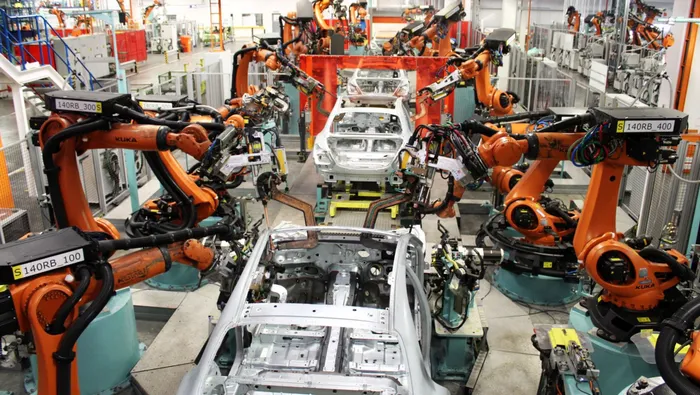Job losses loom as Saftu and Cosatu highlight South Africa's manufacturing crisis

The South African Federation of Trade Unions (Saftu) and Congress of South African Trade Unions (Cosatu) are concerned about the loss of jobs as the manufacturing sector continues to decline.
Image: Supplied
The SA Federation of Trade Unions (Saftu) and the Congress of South African Trade Unions (Cosatu) have raised concerns about job losses amid a decline in the country's manufacturing sector.
This was after Statistics SA (Stats SA) released data showing that manufacturing production decreased by 0.8% in March compared to the same period last year.
This marked the fifth consecutive month of decline in industrial activity.
The largest negative contributors were petroleum, chemical, rubber and plastic products and electrical machinery.
On a quarterly basis, production fell by 2.3% in the first quarter of 2025 compared to the fourth quarter of 2024.
It also decreased by 2.2% on a monthly basis - March 2025 compared to February 2025.
Saftu attributed the decline to neoliberal policies, insufficient investment and an extractive economic structure.
The union warned that this would be worse as the expanded definition of unemployment, which includes those discouraged from seeking employment, remained unchanged at 41.9%.
Saftu said also this confirms a long-term trend of deindustrialisation.
Since 1994, Saftu said, manufacturing’s share of Gross Domestic Product (GDP) has declined from 22% to just over 11% while capacity utilisation has dropped from 82% to 65%.
The union pointed to a decline in investment, both public and private, as a key factor in the manufacturing sector’s struggles.
Cosatu added that it was concerned about the loss of jobs.
It said the Gross Fixed Capital Formation was 14.93% of the GDP in 2023, which is down from 20% in the early 2000s.
It said the private sector investment was 12.37% of the GDP, while public sector investment was just 2.5%.
Saftu’s general secretary, Zwelinzima Vavi, said these figures confirm that both the State and private capital have retreated from investing in the productive economy.
“Unless state policy changes, we can anticipate even worse bouts of deindustrialisation, because of the steel industry’s crisis.
"Already the crash of steel output from a peak of nine million tonnes a year to around four million tonnes has required an ongoing bailout of ArcelorMittal foundries that were due to close,” he said, warning that US President Donald Trump’s decision to impose tariffs on imports would also worsen the situation.
Cosatu called on the government to seek alternate trading partners to counter the impact of US tariffs.
“Simultaneously, more must be done to ensure Eskom is able to provide reliable and affordable electricity, Transnet can transport our mining, manufacturing and agricultural goods, and Metrorail workers to their destinations on time and at affordable prices. Municipalities must be fixed to provide the basic services the economy depends on.
“A new mass industrial financing programme, mobilising public and private resources must be put in place to support the reindustrialisation of the economy and in particular export and jobs intensive sectors,” said Cosatu.
Cape Argus
Related Topics:
